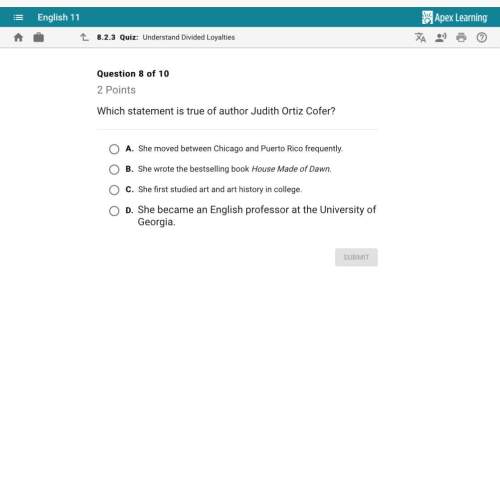
Sir humphrey davy was an english chemist. he is known for contributing to the discoveries of chlorine and iodine, and for the invention of davy's lamp, which proved to be very useful to miners. as a child, davy was bright, intelligent, and curious. he would always come up with new rhymes at christmas gatherings. later, he composed verses in latin and english, and his friends would request him to write prose and letters with which they could impress their girlfriends. although timid in behavior, davy was a gifted storyteller. when davy was a little older, he met davies gilbert, who played a key role in shaping davy's professional career in the field of science. davy started experimenting on different gases and chemicals. in 1800, he published his book researches, chemical and philosophical. in 1808, davy discovered the five elements barium, calcium, boron, strontium, and magnesium. this discovery brought him a lot of fame and made him a celebrity overnight. the fame and recognition made him haughty. people began to criticize him and gossiped about him. although davy's way of dressing was rustic, he was ambitious and wanted to be a part of the elite london crowd. this led to him being ridiculed by the usually well-dressed people, but davy was immune to their reactions and remained focused on his work. 4 based on the context of the passage, what does the word rustic suggest about sir humphrey davy? a. he wore clothes that made him look taller. b. he wore only formal clothes at all occasions. c. he dressed in heavy, durable, thick garments. d. he dressed in inelegant and outdated clothes. reset submit

Answers: 1


Another question on English

English, 21.06.2019 16:30
What to the slave is the fourth of july? by frederick douglass fellow-citizens—pardon me, and allow me to ask, why am i called upon to speak here to-day? what have i, or those i represent, to do with your national independence? are the great principles of political freedom and of natural justice, embodied in that declaration of independence, extended to us? and am i, therefore, called upon to bring our humble offering to the national altar, and to confess the benefits, and express devout gratitude for the blessings, resulting from your independence to us? but, such is not the state of the case. i say it with a sad sense of the disparity between us. i am not included within the pale of this glorious anniversary! your high independence only reveals the immeasurable distance between us. the blessings in which you this day rejoice, are not enjoyed in common. the rich inheritance of justice, liberty, prosperity, and independence, bequeathed by your fathers, is shared by you, not by me. the sunlight that brought life and healing to you, has brought stripes and death to me. this fourth of july is yours, not mine. you may rejoice, i must mourn. to drag a man in fetters into the grand illuminated temple of liberty, and call upon him to join you in joyous anthems, were inhuman mockery and sacrilegious irony. do you mean, citizens, to mock me, by asking me to speak to-day? fellow-citizens, above your national, tumultuous joy, i hear the mournful wail of millions, whose chains, heavy and grievous yesterday, are to-day rendered more intolerable by the jubilant shouts that reach them. if i do forget, if i do not faithfully remember those bleeding children of sorrow this day, "may my right hand forget her cunning, and may my tongue cleave to the roof of my mouth! " to forget them, to pass lightly over their wrongs, and to chime in with the popular theme, would be treason most scandalous and shocking, and would make me a reproach before god and the world. my subject, then, fellow-citizens, is american slavery. i shall see this day and its popular characteristics from the slave's point of view. standing there, identified with the american bondman, making his wrongs mine, i do not hesitate to declare, with all my soul, that the character and conduct of this nation never looked blacker to me than on this fourth of july. whether we turn to the declarations of the past, or to the professions of the present, the conduct of the nation seems equally hideous and revolting. what is one of the lessons douglass impresses on his listeners? a) the nation should not rejoice until everyone has freedom. b) he must speak on the fourth of july in order to bring change. c) for him to join the celebration would be treason. d) he can see the perspective of slaves and citizens with equal clarity.
Answers: 1

English, 21.06.2019 17:50
Along the sea-sands damp and brown the traveller hastens toward the town, what is the effect of the enjambment in these two lines? it emphasizes the idea that each line is a separate thought. it creates a rhyme scheme between the two lines. it encourages the reader to pause between the two lines. it strengthens the connection between the two lines.
Answers: 2

English, 21.06.2019 20:00
Eating while you drive a.increases your risk of being involved in a collision b.is only risky with heavily packaged foods c.should only be done with food that can be handled easily
Answers: 2

English, 21.06.2019 22:10
Romeo and juliet have fallen in love, even though their families despise one another. based on the excerpt, what are the two main purposes of this prologue?
Answers: 2
You know the right answer?
Sir humphrey davy was an english chemist. he is known for contributing to the discoveries of chlorin...
Questions

Mathematics, 25.07.2019 20:30

Mathematics, 25.07.2019 20:30

Health, 25.07.2019 20:30

Mathematics, 25.07.2019 20:30



Computers and Technology, 25.07.2019 20:30

Mathematics, 25.07.2019 20:30

Geography, 25.07.2019 20:30


Health, 25.07.2019 20:30

History, 25.07.2019 20:30

Mathematics, 25.07.2019 20:30

History, 25.07.2019 20:30

Biology, 25.07.2019 20:30

History, 25.07.2019 20:30




Biology, 25.07.2019 20:30




